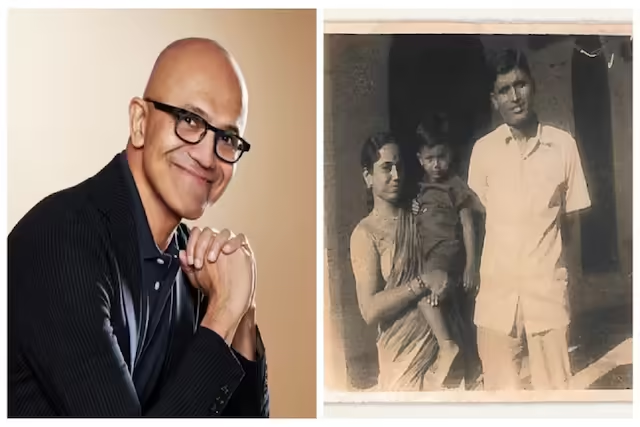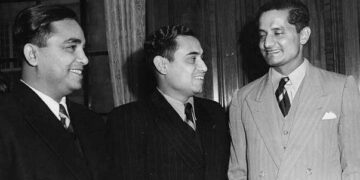Salim Ali (English: Salim Ali, full name: ‘Salim Moizuddin Abdul Ali’, born: 12 November 1896; died: 27 July 1987) was an Indian ornithologist and naturalist. Salim Ali is known as the Birdman of India. Salim Ali was the first person in India to systematically organize bird surveys across India and his books on birds have greatly helped in the development of ornithology in India.
In 1906, the inexhaustible curiosity of ten year old boy Salim Ali has made him recognized in the world today as an ornithologist. This person, who spent 65 years in surveying birds, was called a walking encyclopedia of birds. The efforts made by this ‘Messiah of Birds’, awarded with Padma Vibhushan, towards nature conservation can never be forgotten.
Salim Moizuddin Abdul Ali was born on 12 November 1896 in Bombay (now Mumbai), British India, into a Sulaimani Bohra Muslim family. He was the youngest among his siblings. One year after his birth, his father Moizuddin died and three years later his mother Zeenat-un-Nisa died. He was brought up in a middle-class family in Khetwadi, Mumbai, under the care of his maternal uncle Amaruddin and childless maternal aunt Hamida Begum. His entire childhood was spent among birds. His curiosity about the yellow spots on the neck of a sparrow attracted W., Secretary of the ‘Natural History Society’ of Mumbai. S. Took to Millard. This meeting proved to be an important turning point in his life. For the first time, Salim came to know about the existence of so many species of birds. It was from here that he got inclined towards birds and he decided to know everything about them. Millard helped him a lot for this. He introduced Salim to the Society’s collection of birds. Also informed about some books related to birds. Edward Hamilton Aitken’s book ‘Common Birds of Bombay’ inspired Salim to collect birds. Salim did not have a university degree. The biggest reason for this was his weakness in mathematics. Although he had received education in college, he could not get a degree.
Since childhood, Salim Ali was interested in traveling in the free environment of nature. For this reason he could not complete his studies completely. When Salim Ali grew up, he was sent to Burma (present-day Myanmar) to help his elder brother in his work. Even here his mind was occupied with seeing different types of birds in the forest. On returning home, Salim Ali took training in ornithology and was appointed as a guide in the Museum of Natural History Society, Bombay. Then he went to Germany and received higher training. But after returning to the country after a year, he came to know that his post had ended. His wife had a little money. Due to which Salim Ali started living in a small house at a place called Kihim near Bombay port. This house was surrounded by trees on all sides. Due to heavy rainfall that year, the Baya bird built a nest on a tree near their house. Salim Ali used to study the living conditions of the Baya bird for hours every day for three-four months.
There are very few people in the world who live for others and even fewer who think about creatures different from the human race. One such rare personality was the famous naturalist Salim Ali, who devoted his entire life for birds. It is said that Salim Moizuddin Abdul Ali understood the language of birds and because of this quality he was called Birdman of India. He connected the study of birds with the general public and was at the forefront in the construction of many bird sanctuaries. Dr. P.A., Director of ‘Salim Ali Center for Ornithology and Nature Science’ (SACON), Coimbatore. Aziz told that Salim Ali was a visionary person. He made a huge contribution to ornithology. It is said that he understood the language of birds very well.
He roamed in the forests of many areas of India to study different species of birds. From the Terai region of Kumaon, he discovered a species of Baya which was declared extinct. Salim Ali knew the birds so closely that he could even talk with them in their language. Salim Ali knew each and every habit of Siberian cranes very well. After studying storks, he himself said that Siberian storks are not carnivorous, they eat moss frozen at the water’s edge. Salim Ali’s behavior with birds was friendly, he had more than 100 ways to catch birds without hurting them. The famous ‘Gong and Fire’ and ‘Deccan method’ of catching birds without causing any pain is the discovery of Salim Ali, which is still used in the bird world.
At the University of Berlin he worked under the famous biologist Erwin Stresemann. He returned to India in the year 1930 and then started working rapidly on birds. After independence, Salim remained among the prominent people of ‘Bombay Natural History Society’ (BNSCH). He played a major role in the establishment of Bharatpur Bird Sanctuary.
In 1930, he published articles based on his studies. It was because of these writings that Salim Ali got recognition as ‘Pakshi Shastri’. Salim Ali has also written some books. Salim Ali used to go from place to place collecting information about birds. His book ‘The Book of Indian Birds’, prepared on the basis of the information collected, achieved record sales after its publication in 1941. This book was a vast ocean of information about birds. He also wrote another book ‘Handbook of the Birds of India and Pakistan’, in which a lot of comprehensive information was given related to all types of birds, their merits and demerits, migratory habits etc. Apart from this, his book ‘The Fall of a Sparrow’ is also important, in which he has mentioned the events of his life.
Salim Ali, who has expertise in natural science and study of birds, was awarded prestigious honors in the country and abroad. Institutions like Aligarh Muslim University and Delhi University awarded him honorary doctorates. For his important work on natural science and birds, he was honored by the Government of India with major country honors like Padma Bhushan in 1958 and Padma Vibhushan in 1976. Dr. Salim Ali died on 27 July 1987 at the age of 91. Salim Ali wanted to establish a ‘Bird Study and Research Centre’ in India. It is noteworthy that Salim Ali Center for Ornithology and Natural History was established in his name by ‘Bombay Natural History Society’ and ‘Ministry of Environment and Forests’ at a place called ‘Anaikatti’ near Coimbatore.






